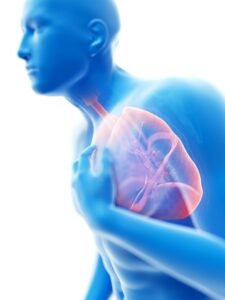Transfusion-related acute lung-injury (TRALI) is a rare but potentially fatal complication of plasma transfusions affecting 1 in 10,000 transfusions and up to 1 in 100 transfusions in critically ill patients. Deferring plasma from multiparous females and other donors who may have HLA antibodies has dramatically reduced the incidence of antibody-mediated TRALI, but the presence of alloantibodies only explains about half of TRALI cases. Recent research suggests that bioreactive lipids may be key to the pathophysiology of non-antibody-mediated TRALI. Using a TRALI model in mice along with in vitro studies in human endothelial cells, McVey and colleagues found that stored platelets (5 days) initiate TRALI in mice whereas fresh platelets (1 day) did not initiate TRALI. In this non-antibody mediated pathway, the endothelial barrier was disrupted leading to TRALI because of increased ceramide and decreased sphingosine-1-phosphate (S1P) in extracellular vesicles (EVs) formed from the stored platelets. Specifically, after 5 days of storage, EVs were larger, more numerous, had higher long-chain ceramide, and lower S1P levels than EVs in fresh platelets stored for only 1 day. However, endothelial injury and TRALI was found to be reduced by inhibiting ceramide formation, increasing S1P concentration, or washing the stored platelets to remove EVs. Further research is needed to see if washing stored platelets or maintaining a favorable lipid balance (low ceramides and high S1P) may further reduce the incidence of TRALI in humans.
References:

